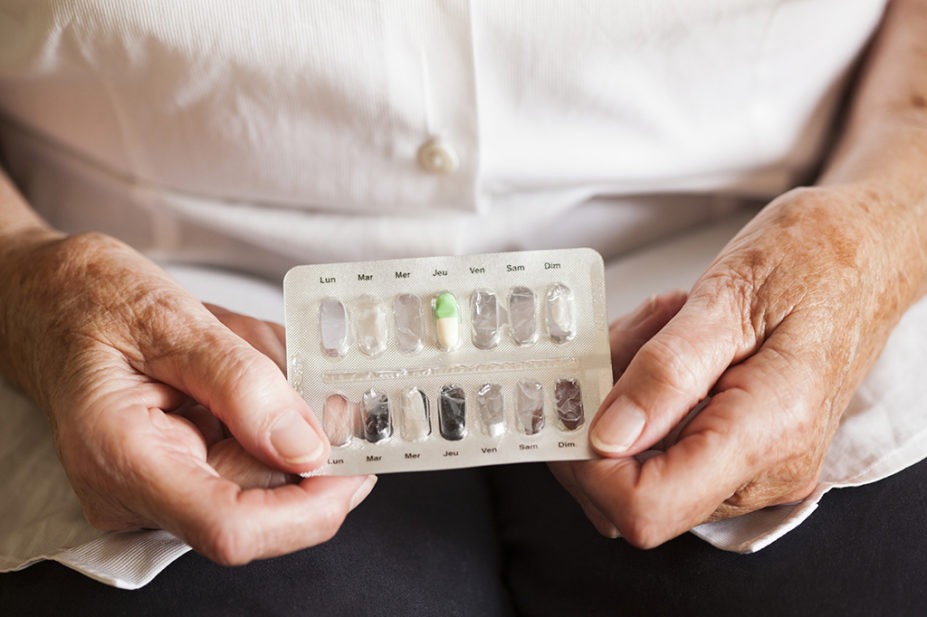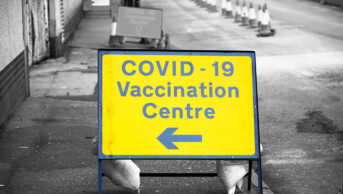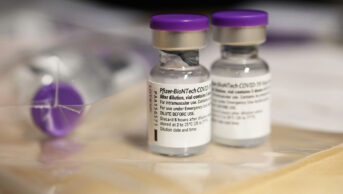
Cristina Pedrazzini / Science Photo Library
Use of selective serotonin reuptake inhibitors (SSRIs), particularly fluoxetine, may reduce mortality among patients with COVID-19, a study published in JAMA Network Open has found.
In a retrospective cohort study, published on 15 November 2021, researchers analysed electronic health records from 83,584 patients from across the United States diagnosed with COVID-19 between January 2020 and September 2020, including 3,401 patients who were prescribed SSRIs.
Of these, 470 were receiving fluoxetine only and 11 were receiving fluvoxamine only.
When compared with matched, untreated control patients, the data showed that the overall relative risk of mortality was reduced by 8% (relative risk [RR] 0.92, 95% confidence interval [CI], 0.85-0.99; adjusted P=0.03) in patients prescribed any SSRI.
However, in subgroup analysis, the researchers found that the relative risk of mortality was reduced by 28% in those treated with just fluoxetine (RR 0.72, 95% CI, 0.54–0.97; adjusted P=0.03) and 26% for those treated with fluoxetine or fluvoxamine (RR 0.74, 95% CI, 0.55–0.99; adjusted P=0.04).
Fluoxetine is indicated to treat major depression, obsessive compulsive disorder, bulimia nervosa and some menopausal symptoms, while fluvoxamine is used to treat depressive illness and obsessive compulsive disorder.
The authors highlighted that the study was limited by its retrospective nature because it could only identify an association between SSRI treatment and COVID-19 mortality, not a causal link, and could be subject to unaccounted confounding variables. However, they said that the results did suggest that “if proven effective”, SSRIs could be a therapeutic option to reduce mortality among patients with COVID-19.
Study author Marina Sirota, associate professor of paediatrics at the University of California, San Francisco (UCSF), said: “We can’t tell if the drugs are causing these effects, but the statistical analysis is showing significant association. There’s power in the numbers.”
Tomiko Oskotsky, another author of the study and research scientist at UCSF, described the results as “encouraging”.
“It’s important to find as many options as possible for treating any condition. A particular drug or treatment may not work or be well tolerated by everyone. Data from electronic medical records allow us to quickly look into existing drugs that could be repurposed for treating COVID-19 or other conditions.”
In October 2021, a randomised study, published in The Lancet Global Health found an absolute risk reduction of 5% and a relative risk reduction of 32% in hospitalisation for high-risk patients with COVID-19 treated with fluvoxamine, compared with those given a placebo.
Commenting on these results at the time, Colin Davidson, professor of neuropharmacology and head of school of pharmacy and biomedical sciences at the University of Central Lancashire, said that the SSRI not only bound to the serotonin transporter, but also inhibited the sigma-1 receptor involved in cytokine production and the immune response.
“Fluvoxamine could reduce an out of control immune response, the so-called ‘cytokine storm’, and thereby reduce hospitalisation due to COVID-19. [It is also] suggested that fluvoxamine might have a useful effect through antiplatelet activity, reducing the chances of thrombosis,” he said.
Read more: Antidepressant reduces hospitalisations in high-risk COVID-19 patients, study shows


